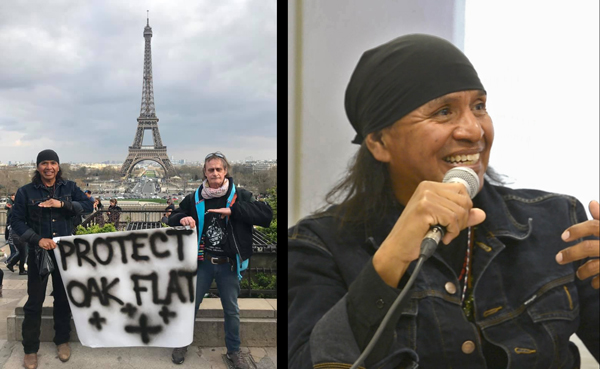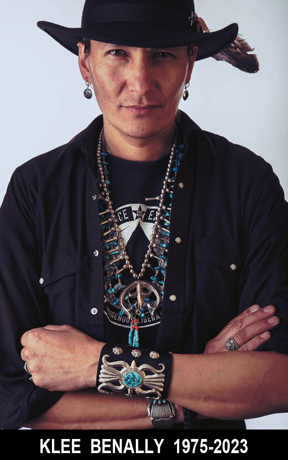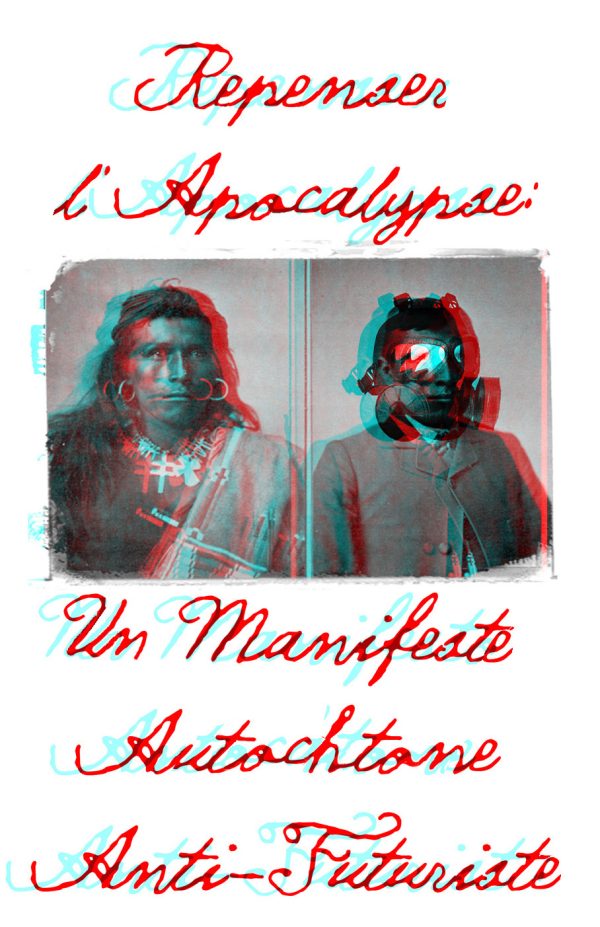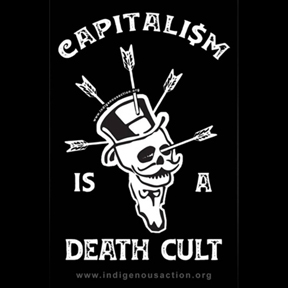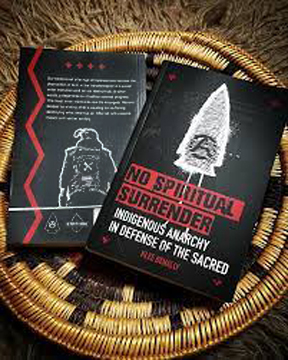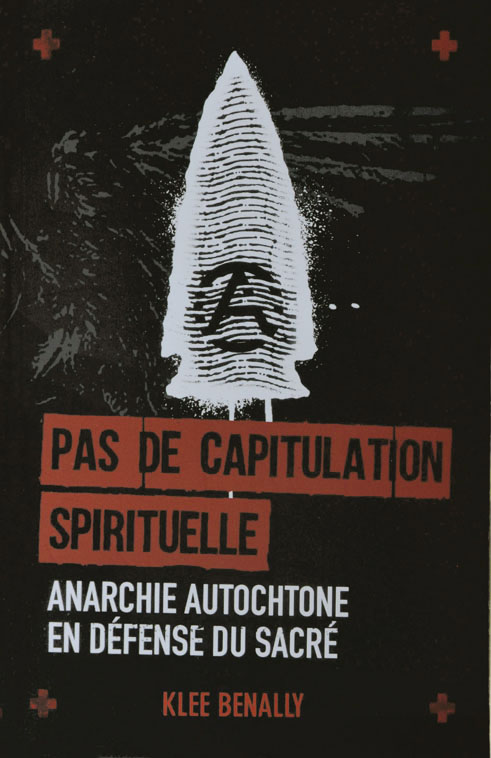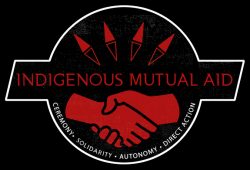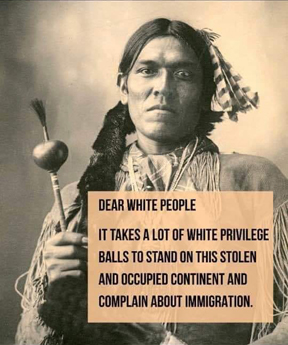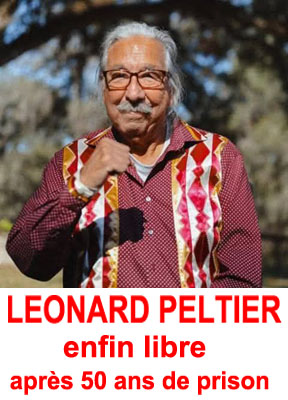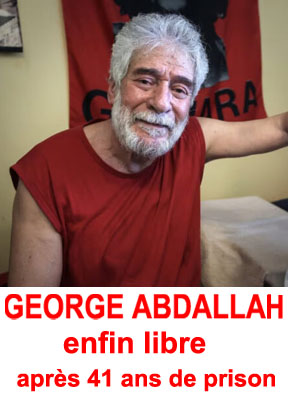On March 23rd, 2019, we were honored by the visit in Paris of Wendsler Nosie Sr. The gathering was organized by the CSIA (Committee for Solidarity with the Indians of the Americas). Mr. Nosie introduced himself and talked about his childhood, his family’s, the Chiricahua Apache’s and the San Carlos Reservation’s history. This article reproduces this first part of his speech. He then spoke about the struggle for Mount Graham and its importance in Native American struggles, and, of course, about Oak Flat. This will be published in following articles.
Christine Prat (CSIA-nitassinan)
Also published on Censored News
Wendsler Nosie Sr. first asked the audience: “Is anybody familiar with what they call ‘pooper scooper’?” and went on explaining: “What it is, is when in a Parade, they have horses, and the horses poop, and someone picks it up, to make it look clean. That’s what I think I am. Because, when I was growing up, I was always around the older people. They had a lot of information and a lot of wisdom, they had a lot of heart. I was left to help understand what we were going through, and how it would affect our children. 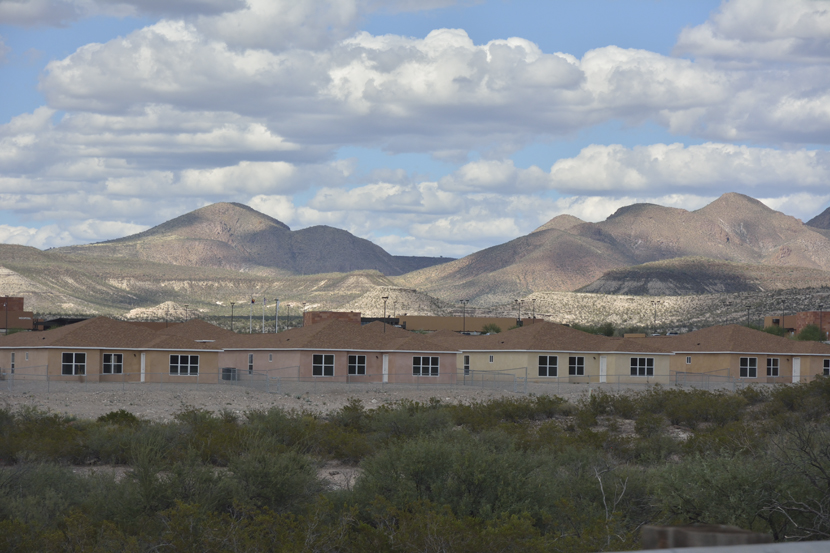 So, what I’m talking about is that my great-grand-parents were free people. Then, my grand-parents were brought as prisoners of war into San Carlos, and my mother was born in a prison. So, my mother felt the transition from what prison life was to when it became a reservation in 1934. There was one thing she really hated, she called it a disease. It was passed on and passed on, then passed to me. Then I wanted to give it to my kids. What she was referring to, was that people were changing, in something that was forced on us, to change.”
So, what I’m talking about is that my great-grand-parents were free people. Then, my grand-parents were brought as prisoners of war into San Carlos, and my mother was born in a prison. So, my mother felt the transition from what prison life was to when it became a reservation in 1934. There was one thing she really hated, she called it a disease. It was passed on and passed on, then passed to me. Then I wanted to give it to my kids. What she was referring to, was that people were changing, in something that was forced on us, to change.”
“They looked between the bars and said to themselves, and asked the question to their parents, ‘how come these people on the other side are different?’ And 5 years old children would see that there is a difference between living on a reservation and living off the reservation. Then, they began to understand that everything they saw did not apply to those who lived in a jail cell. So, when I was growing up, this is what they talked about. But I never thought I would be living, in that day. So, in the 1960’s, late 1960’s, for some reason, I was always with the older people, and always with the holy people who were still on the reservation. Then, what I have also learned, but also felt inside, about our holy places, these holy places where we came from, we were exiled out of that and put into a reservation, to not go back to where we originated from. Not only that I experienced that, a lot of people did. A lot of people on our reservation experienced what I’m sharing with you. So, when I talk about the pooper scooper, there was a lot of work, there was a lot of seeing, and there was a lot of smelling, good and bad.”
“There were a lot of people before me, way before me, and a lot of people who were ahead of me. Then I say it’s like a laying, a laying of bricks, every brick is a step. And the reason I say that is because every step is crucial, every step, every brick that’s laid is very crucial. Because the ones in our following are the children. So, those bricks we lay are for our children to have a solid ground to step on. And the reason I start with that is because I never thought I’d be here, I never thought of ever talking in front of people. I always admired musicians, movie stars, politicians, all these people. It’s exciting to see them. So, it’s kind of funny for me to have a group listening to me.”
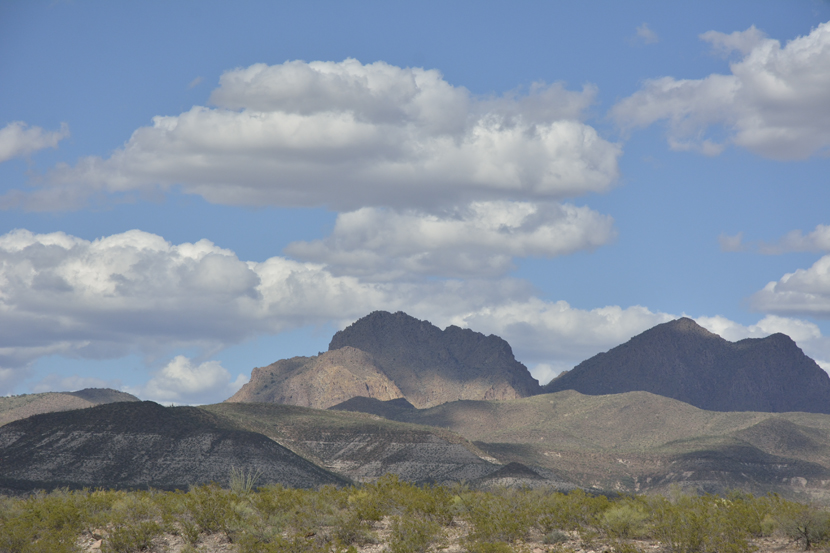 “What’s so important is, back home on my reservation, is that I challenge my people. But I had to challenge myself first. Because when I learned all about this, I was very discouraged. So, when I confronted my mother and my grand-parents, I was discouraged, because there is really no answers and the questions you have for your family before you, they are difficult questions for them to answer. Because where I come from, in my reservation, in the San Carlos Apaches, we have 15 different types of Apaches living in one reservation. Like here in France, it’s French, but you have different regions of people and you are all brought together to live as one.”
“What’s so important is, back home on my reservation, is that I challenge my people. But I had to challenge myself first. Because when I learned all about this, I was very discouraged. So, when I confronted my mother and my grand-parents, I was discouraged, because there is really no answers and the questions you have for your family before you, they are difficult questions for them to answer. Because where I come from, in my reservation, in the San Carlos Apaches, we have 15 different types of Apaches living in one reservation. Like here in France, it’s French, but you have different regions of people and you are all brought together to live as one.”
“I am a descendant of the Chiricahua. Most of you must be familiar with Geronimo. So, that’s my family blood line. So, the reason why I’m here, I think it is because it goes back to my grand-parents. Because, back in the 1800’s, my people were still fighting the Spaniards, as they came out Mexico. So, my great-grand-father was still out, one or two months before Geronimo and his people were exiled to Florida. And I am staying in San Carlos.”
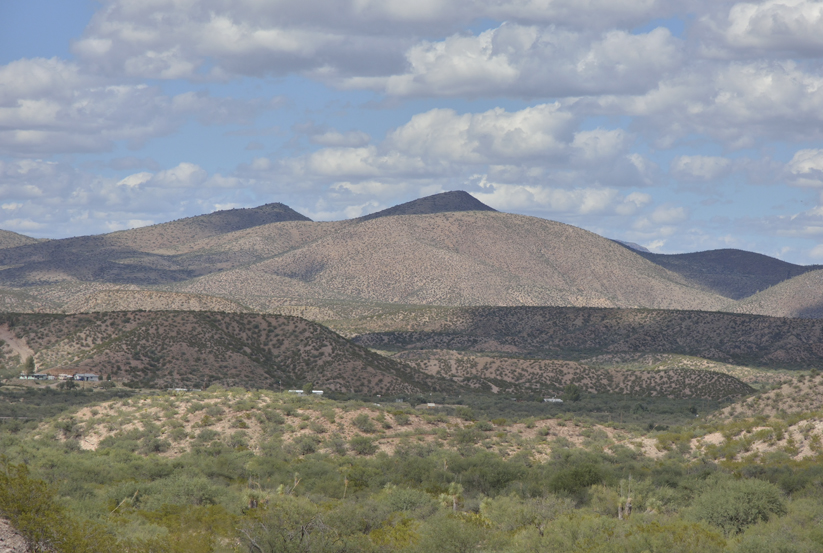 “”So, there are different groups of Apaches. So, as you see in America, when they are going to other foreign countries, they sided with a tribe, they sided with different groups of people, against their own people. So, in my people, we were the freedom fighter people, who fought to the last day. So, being in San Carlos, we were living with the scouts for the Americans, Apache who became military scouts for the Americans. When the United States were changing in 1934, the scouts moved out of the reservations.”
“”So, there are different groups of Apaches. So, as you see in America, when they are going to other foreign countries, they sided with a tribe, they sided with different groups of people, against their own people. So, in my people, we were the freedom fighter people, who fought to the last day. So, being in San Carlos, we were living with the scouts for the Americans, Apache who became military scouts for the Americans. When the United States were changing in 1934, the scouts moved out of the reservations.”
“So, in 1934 to 2006, in the white man’s elections – for we have a tribal government now – in the American elections, in 2006, we finally elected somebody who served as leader of the government, from the freedom people who fought to the very end. In 2006, the person they elected to run the whole tribe was… ME! So, that’s when we began to change, in America. I am very proud of that, because there were a lot of people like me waiting. We were waiting, because there had been so many things in the 1950’s, the 1960’s, the 1970’s, and movements in America. But the elders, where I grew, in the 1960’s, in Apache would say ‘wait, it’s not our time’. You can imagine growing up with them telling to wait, wait.”
“So, my mother reminded me of something very important. She said ‘you can hate them – meaning America – you can kill them, you can beat them up, but is it who you really are?’ Because you have to remember, in the beginning, when they first came to our part of land, they did not know what they were doing, and in our language, there is no word for white people, black people or Asian people, there is no such word. And for the first people who came in our area, the word meant ‘those are your relatives’. We didn’t know their mentality was different from ours. So, my mother told me to watch and learn. But most importantly, the road you’re on is spiritual. She said ‘you can’t, as a human being, you can’t make out where you want to go. The Creator, which means the Holy Spirit, will come to you and give you directions where to go’. So, you can imagine as a young man, being very patient. It was always ‘wait’, ‘you will know when it will come’. But in this kind of world, there is bad all over the place, there is temptation all over the place.”
“I can only speak of San Carlos. In the 1960’s, we lost two very important people. I say that because when it comes to spirituality, there are some who are trained and some who are gifted. The two I speak of where gifted. They were blessed. So, these two also laid a foundation for tomorrow. And again, the foundation they talked about was the children. It goes back to the whole people. When the first things came, they were American, modern, something that was new to us, they said when we touch it, we become dirty. They left a lot of clues and I always wondered why they never gave you the answer. So, now that I am 60 years old, I understand why: because they want you to find, because everything you do, it comes from your heart. Because what they say now, as I understand, if you don’t feel it here [pointing at his heart], then you don’t feel anything. So, this is why I turn to my people and challenge us to heal.”
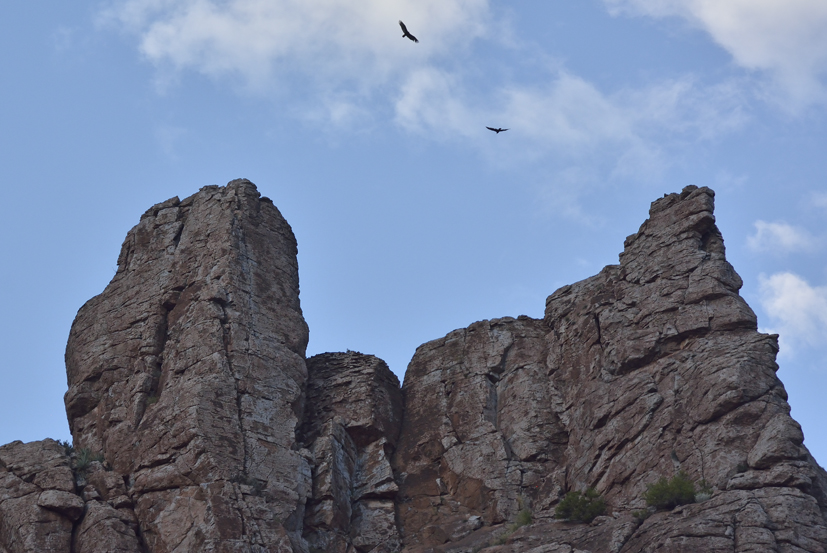 “I was told a joke. I may not say it as good as this one person. But it always makes me laugh. So, one day they found a baby eagle and they stuck it in the cage of the chicken. Years went by. That what man came to visit the family, and he said ‘hey, there is an eagle inside that chicken coop’. And the white man said ‘ah! He thinks he is a chicken.’ It bothered the other man. He kept saying ‘but that’s an eagle’. The white man kept saying ‘Nay, he is a chicken, he thinks he is a chicken’. It bothered the man, so he asked the white man ‘Can I take this eagle and show him that he is an eagle?’ The white man said ‘yeah, you can take it, but he thinks he is a chicken’. So, he took the eagle and prayed, and through him in the air and told him to plane like an eagle. So, the eagle flew, but when he hit the ground, he quacked and walked like a chicken. He did it two more times, and the same thing happened. Finally, he was so upset, he took the eagle to a cliff and had the eagle look into the canyon. So, finally he looked again, prayed and said “eagle you must fly” and threw him in the canyon. So, he started to spear down to hit the bottom. But finally, he gave up a cry that he himself never heard and then he picked up himself and flew like an eagle. So, the joke in the story behind that is that he said ‘that’s who you are’, the Native people of North America. So, when I was coming here, the ocean is very big, so I reminded myself I was an eagle. So, I won’t be a chicken being here. This was a very important thing that was said to our people, because we were acting like somebody we were not. And that’s why I said in 2006 is when we began to change our world.”
“I was told a joke. I may not say it as good as this one person. But it always makes me laugh. So, one day they found a baby eagle and they stuck it in the cage of the chicken. Years went by. That what man came to visit the family, and he said ‘hey, there is an eagle inside that chicken coop’. And the white man said ‘ah! He thinks he is a chicken.’ It bothered the other man. He kept saying ‘but that’s an eagle’. The white man kept saying ‘Nay, he is a chicken, he thinks he is a chicken’. It bothered the man, so he asked the white man ‘Can I take this eagle and show him that he is an eagle?’ The white man said ‘yeah, you can take it, but he thinks he is a chicken’. So, he took the eagle and prayed, and through him in the air and told him to plane like an eagle. So, the eagle flew, but when he hit the ground, he quacked and walked like a chicken. He did it two more times, and the same thing happened. Finally, he was so upset, he took the eagle to a cliff and had the eagle look into the canyon. So, finally he looked again, prayed and said “eagle you must fly” and threw him in the canyon. So, he started to spear down to hit the bottom. But finally, he gave up a cry that he himself never heard and then he picked up himself and flew like an eagle. So, the joke in the story behind that is that he said ‘that’s who you are’, the Native people of North America. So, when I was coming here, the ocean is very big, so I reminded myself I was an eagle. So, I won’t be a chicken being here. This was a very important thing that was said to our people, because we were acting like somebody we were not. And that’s why I said in 2006 is when we began to change our world.”

